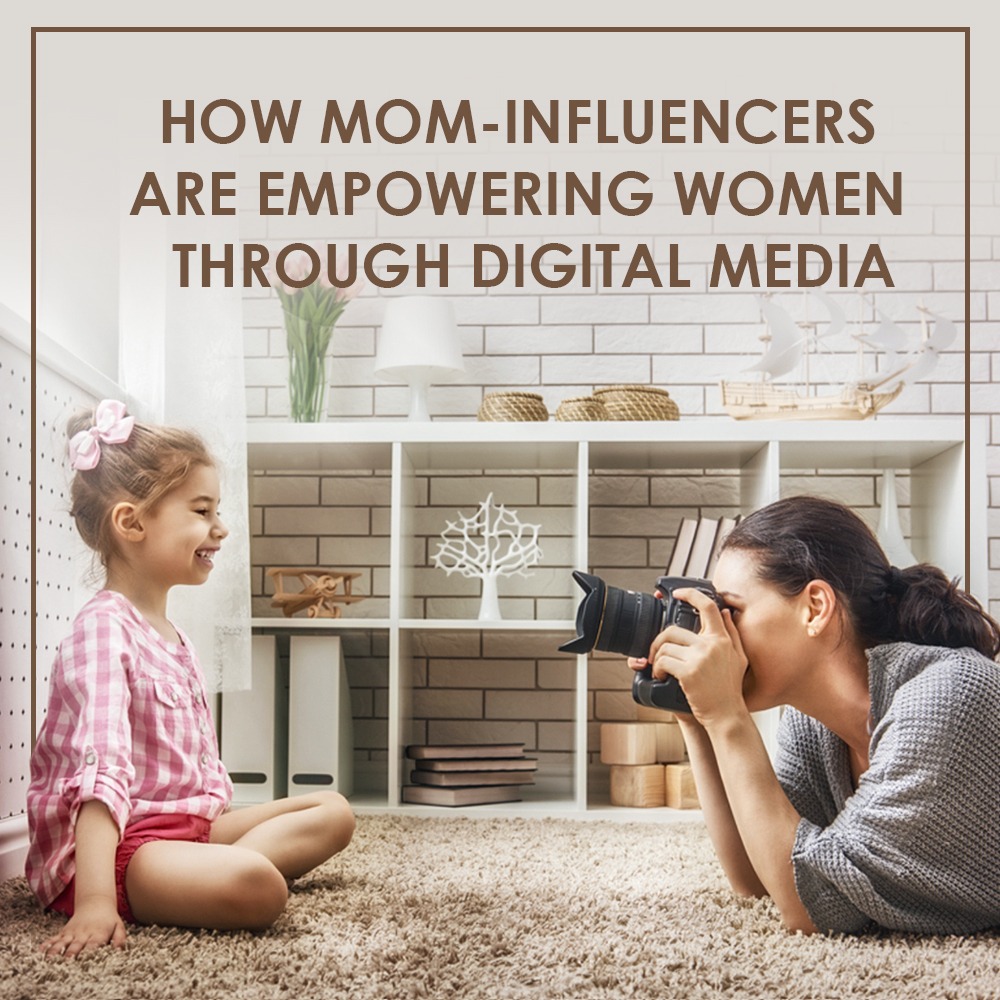In our digitised world, just about everything is a click away. Although we may feel busier and more isolated than our predecessors, we can now form relationships of all kinds on various apps, from the comfort of our sofas. And for many first-time mums, this way of establishing connections is ideal, as face-to-face socialising can be tricky with the mountain of responsibilities and shrinking “me time” that comes with motherhood. But how much information sharing is too much? A couple of studies done by two researchers from the US-based Universities of Akron and Tennessee – Knoxville, might give you a clue. The duo collaborated to study new mums’ tendency to engage in “sharenting” on social media. Their findings were published online in the Journal of Public Policy and Marketing.
The research
Researchers Mariea Grubbs Hoy, DeForrest Jackson Professor in the School of Advertising and Public Relations in the of the University of Tennessee in Knoxville, and Alexa K. Fox, an assistant professor of marketing at the University of Akron, conducted two studies on “sharenting”. Sharenting (a moniker born from “share” and “parenting”) describes a phenomenon where parents frequently share pictures and news about their children online.
In both studies, Fox and Hoy found uncovered a link between women’s feelings of vulnerability about motherhood and their tendency to post updates on social media. The updates sometimes included information that could personally identify children such as names, photos and birthdates.
The first study
For this study, Fox and Hoy interviewed 15 experienced and first-time mums ages 24 to 40. All the interviewees were highly educated, white-American women with children ranging from 14 weeks to 11 years old. The women told the researchers that they spent anywhere between less than half an hour to two hours a day on social media.
They asked the mums about their feelings around motherhood and whether they post about their children on social networking sites. They also asked them questions to find out how savvy they were about privacy rules, data ownership and other principles related to social media use. Lastly, they asked them if they were willing to share details with companies on social media that could identify their children.
The women in the study also described dealing with several risk factors for vulnerability. Examples of these include body changes, changes in how they saw themselves, new responsibilities, breastfeeding challenges and struggles with postnatal depression and anxiety. According to the researchers, the mums’ sharing their and their children’s personal information and experiences on social media acted as a coping mechanism for them. They say that this is because the mums turned to social media for support and affirmation, and used it to relieve themselves of feelings of stress, depression and anxiety. For instance, all the mothers mentioned posting their children’s milestones, such as their “firsts”, and then waiting for affirmation to roll in in the form of likes and comments.
Nonetheless, the researchers noted that the mothers were aware of the potential for the information they share to be used in unfavourable ways.
The second study
Fox and Hoy gathered their information for this study from a Twitter chat hosted by Carter’s Inc., children’s clothing company. They wanted to see how mothers’ feelings of vulnerability affected their willingness to share their children’s personal information with businesses. The chat attracted 116 different participants, all mums, who together sent out a total of 1,062 original tweets.
Carter’s asked ten questions during the chat and tweeted a coupon for their shop along with a link to their website. The engaged with the mums on the chat by sending responses to tweets of their children’s photos. It also ended the chat by soliciting more children’s pictures by Tweeting: “We’d love seeing your little one today!”.
“The chat provided a case study opportunity to observe how a brand creates a social media event designed to generate engagement with mothers of young children that might prompt the mothers to post their children’s personally identifiable information,” wrote the researchers. They also wrote that by doing this, companies risk prompting parents to sharent.
As far as the chat participants were concerned, Fox and Hoy saw 69 per cent of them tweet something that implied that they felt vulnerable as parents. Additionally, 47 per cent shared some personally identifiable information about their child in response to at least one of the questions, and about a third sent out tweets containing both.
In this study’s conclusion, Fox and Hoy wrote that mothers who seemed to be at the least risk of being vulnerable were less likely to post their children’s private details on the chat.
Why does this matter?
Fox and Hoy say that while many modern parents might have grown up posting about themselves on the internet, they may not realise that sharenting could compromise their child’s online privacy and safety.
They say that mothers’ vulnerabilities might also make them more likely to engage with companies’ social media marketing tactics. Because of this, they say that there needs to be stricter regulatory guidance that protects children’s private information from being used by corporations.
Fox and Hoy also wrote that academics and practitioners should get more clued-up on the types of pressures mums face to be seen as “good” enough in today’s increasingly connected, tech-driven, world.
Writer’s take
The pull of posting gushy statuses about your adorable tots (or venting about them) is probably hard to resist. But, bear in mind that you might not be as in control of the information you share as you think. Because even with your best intentions, what you post could end up being used in ways you didn’t explicitly consent. So, school-up on your data ownership rights, and try to make sure that while you’re creating your own digital footprint, you’re not compromising your child’s.
Sources: https://www.sciencedaily.com/releases/2019/07/190723121900.html
Written by Tesneem Ayoub
More on Family






Leave A Comment
You must be logged in to post a comment.